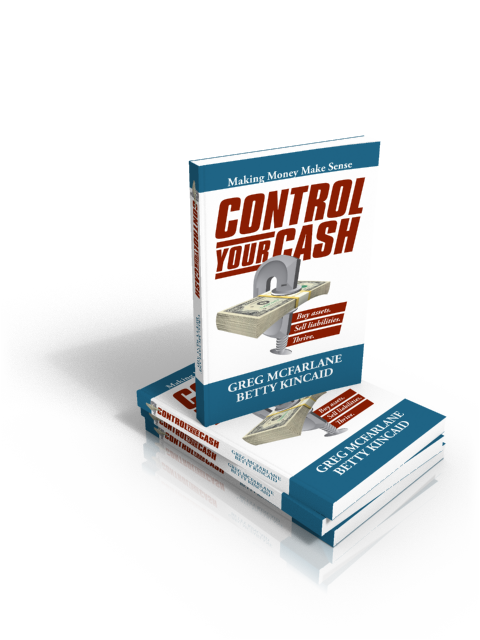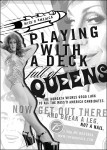Some agencies bill by the project, others by the hour. McFarlane USA is considering a $500 surcharge for every instance in which the agency must restructure any sentence that uses “needs” as a noun.
NAAN isn’t just a dour flatbread. It’s the single clearest indicator of an advertiser merely placing words, rather than writing them.
If illustrating the benefit of the product rather than the product itself is advertising’s first commandment, this is the zeroth:
Be clear.
There’s a reason English is the world’s most widely spoken tongue. With few tenses to memorize, little of the gender confusion that plagues so many of the other Indo-European languages, and a rich vocabulary estimated at half a million words, English’s combination of simplicity and variety is untouched.
Our lingua franca affords the user the opportunity to clarify even the most complex of thoughts. But for fear of sounding gauche, uncultured, or perhaps unduly blunt (as if there’s such a thing as undue bluntness), millions of advertisers and non-advertisers alike feel compelled to spew words in unnecessary and relentless volume.
To borrow a perfect phrase from some anonymous online wag,
Why merely build your company, when you can facilitate synergy and optimize the integration of your resources through empowering forward-looking paradigm management coupled with leveraging your best-practice driven client-centric developmental momentum initiative for growth-positive, revenue neutral outcome prioritization?
The writer left out “skill set”, “transparency” and “incentivize”, but the lack of meaning is still there.
Which returns us to the filthiest device in advertising: never invite people to buy floor wax – that’s far too simplistic. Instead, tell them they can see you for all their floor wax needs.
If you’re a copywriter, next time you have a few minutes to spare and a muse to tickle, try the following insipid game. Google “for all your ________ needs” (with quotes), filling the blank with the most arcane noun/adjective/phrase that comes to mind.
Recently discovered favorites include:
for all your foreign and domestic automotive purchasing needs
for all your desert gardening needs
for all your orienteering needs
for all your ethnic cooking needs
for all your SQL server needs
for all your Arabic translation needs
for all your tactical breaching needs, etc.
For the love of God, nobody has “foreign (nor) domestic automotive purchasing needs”. They want to buy a freaking car.
Unless you’re selling raw meat, bearskin tunics and caves, don’t appeal to your customers’ “needs”. We’ve all got the requisite food, clothing and shelter, presumably. Anything beyond that is a want. More to the point, anything beyond that is a product or a service. Say so.
The pervasion (and perversion) of NAAN isn’t restricted to entities with small advertising budgets, either:
Welcome to Bank of America, the nation’s leading financial institution and home for all of your personal financial needs.
and
When you apply for a mortgage with Bank of America, you’ll get expert advice and a mortgage that fits your needs.
What would be wrong with trying something clear and confident, e.g.:
“Welcome to Bank of America, the biggest financial firm in the world. People in 150 countries have trusted us to preserve and grow their wealth since 1904”?
That kind of mild braggadocio is better than obfuscation, but still worse than truthfulness:
“American taxpayers, thanks for the $45 billion (and counting) in bailout cash – er, ‘injections of capital’. Merrill Lynch and Countrywide looked like fantastic acquisitions at the time.”
(Consider the sarcastic reference to prolix euphemisms within a post about prolix euphemisms to be the blog’s first self-referential joke.)
Meditating on how the Treasury Department is taking management tips from Gosbank is both depressing and off-topic, so let’s return to the relative trivia of bad advertising copy. For an especially malevolent misuse of the language, preface “for all your _____needs” with “one-stop shop” for a Clydesdale dose of English rendered lifeless.
Regrettably, there really do exist several “one-stop shop(s) for all your stationery needs”.
Saying so must get customers in the door far faster than using some workaday line like:
“From heavy-duty printer stock to delicate calligraphy paper. Beautifully embossed signature cards and envelopes, too.”
The pedantic client moans that the improved phrase doesn’t say a word about pens, custom wedding invitations, or those new laminated report covers he fell in love with at the trade show and had to order 10,000 of.
The appropriate response to this is, “You’re a stationer. People will figure it out.”
One company that shall remain unidentified actually has the spare syllables on hand to bill itself as the “one-stop shop for all your Motorola Razr accessories needs.”
If the word “needs” is serving any purpose in the above phrase, please let us know what it is at info@McFarlaneUSA.com.




